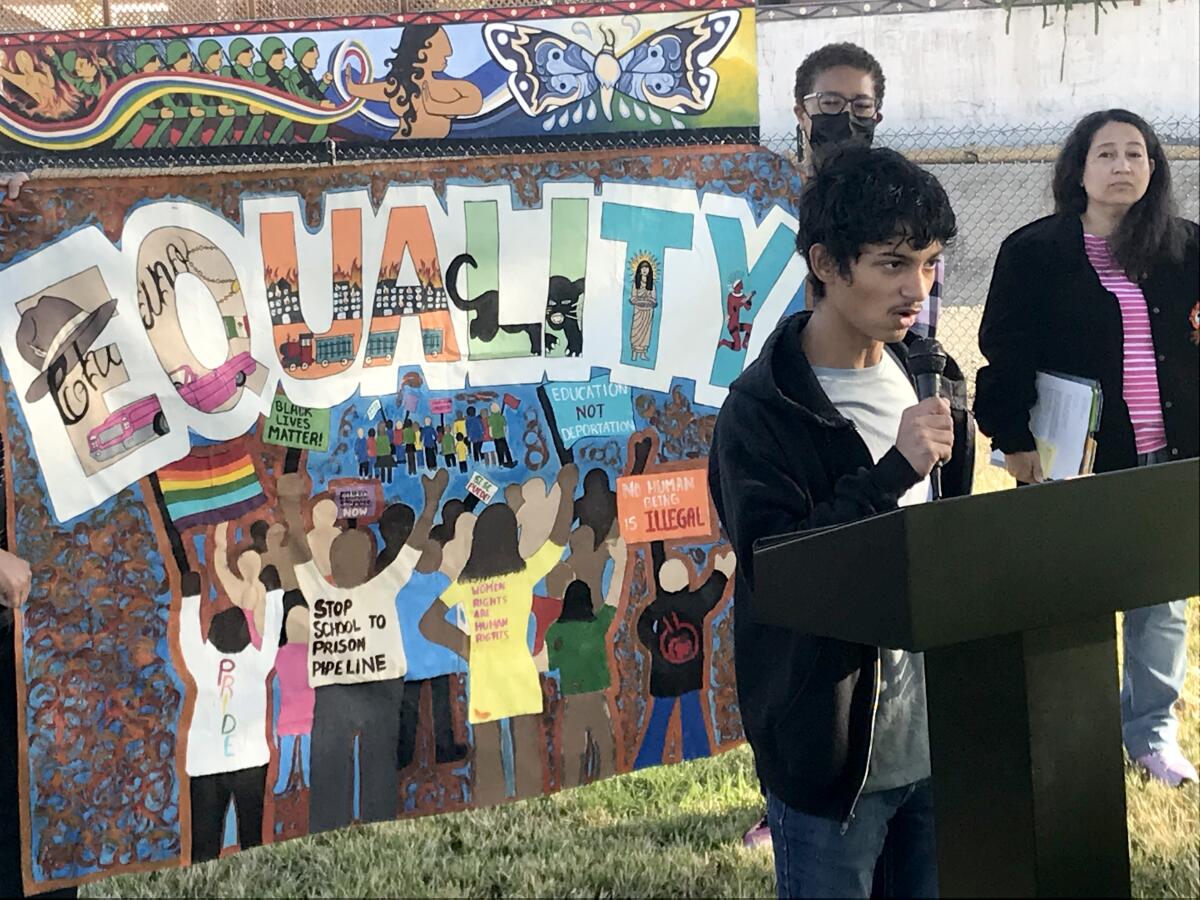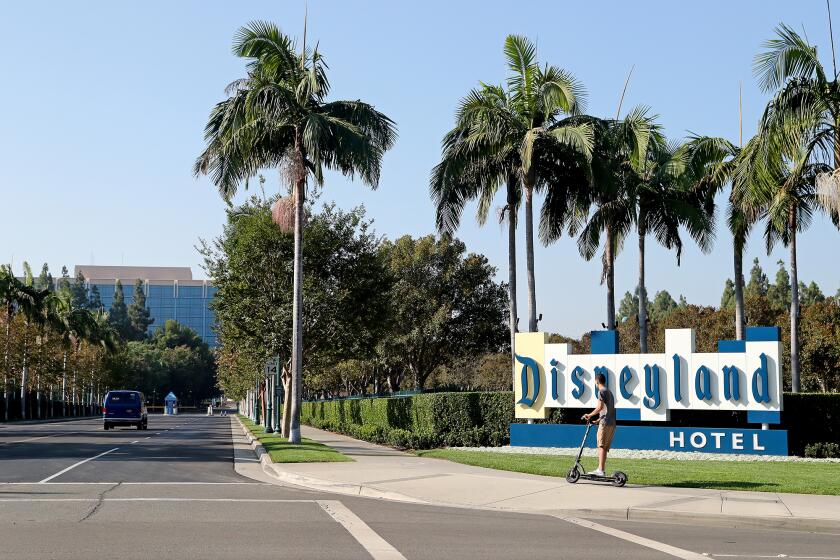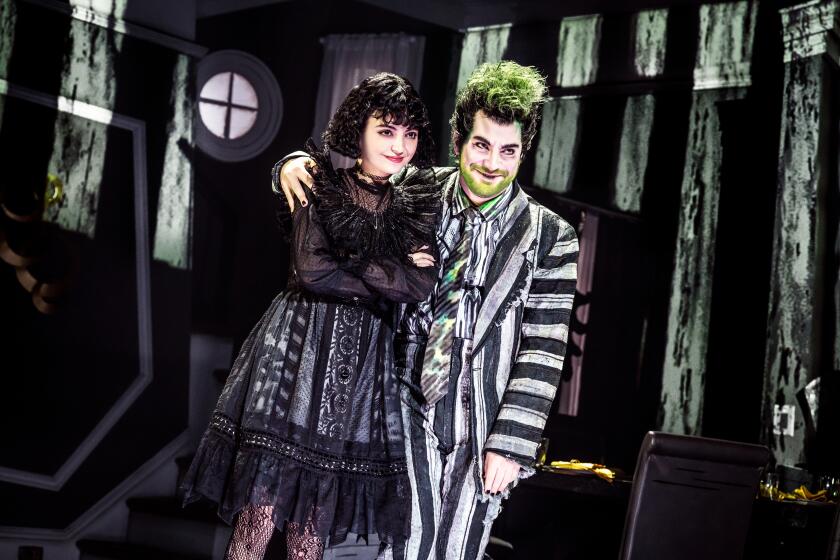Placentia-Yorba Linda school board considers critical race theory ban amid broader battle

Restored from whitewashed erasure, a mural by the late artist Manuel Hernandez-Trujillo served as backdrop as activists rallied around a list of demands for the Placentia-Yorba Linda Unified School District board of trustees. Before discussion of a possible critical race theory ban at a school board meeting on Tuesday night, the press conference sounded a unified message: “enough!”
Parents, teachers and a student speaker took turns at a podium set up on the grounds of Parque de los niños in Placentia’s Atwood barrio.
They called on the board to reject any attempt to effectively ban classroom conversations surrounding race and racism, especially in history courses.
The school board did move forward this summer on developing ethnic studies coursework but a recent incident where a Yorba Linda High School student held a handmade poster reading “Ur dad is my gardener” before a football game against Esperanza High School, which has a more sizable Latino student population, raised tensions and prompted a district investigation after going viral on social media.
“A lot of you have seen that poster,” said Gabe Estrada, a student at Placentia-Yorba Linda Unified, at the press conference. “The problem is you can’t just excuse racism as the impulsive behavior of teenagers. The negative connotation of stereotypical Mexican gardeners is not funny.”
Estrada reasoned that an earlier implementation of ethnic studies could have fostered the necessary respect between students to avoid such incidents; the district’s first task force meeting on ethnic studies curriculum development occurred last week.
Natalie Cruz, another speaker, criticized a decision in July by trustees Leandra Blades, Shawn Youngblood and Marilyn Anderson not to renew a contract with BrainPOP, an animated educational site, on the basis of videos that discuss the Black Lives Matter movement and personal gender pronouns.
A whale-watching tour inspires the Daily Pilot columnist to take a closer look at how information can be rightly or wrongly interpreted.
“Having a board that contributes to discriminatory attitudes from the top will not only encourage hostility but opens the board and district up to legal action,” said Cruz, a local special education teacher and elected California Democratic Party delegate. “What we are asking is that you do not bring these biases into the boardroom or into our school district in your official capacity.”
The rallying cry against critical race theory — which has resulted in several states passing laws banning the academic discipline from schools — is being politically wielded by the Republican Party of Orange County.
It officially endorsed a recall effort against three Tustin Unified School District trustees with a recent resolution citing, in part, a parent group’s enlisting of a university professor who concluded that an ethnic studies course curriculum served as a trojan horse for critical race theory.
A similar recall effort against three Los Alamitos Unified School District trustees is underway, fueled partly by fury over alleged critical race theory instruction.
At the Placentia-Yorba Linda Unified board meeting this week, a trio of trustees claimed to be combating divisiveness when discussing the proposed ban.
Trustee Youngblood began with his own definition of the academic discipline of the hour and deemed it a deviation from civil rights movement leader Martin Luther King Jr.’s guiding principles.
“This theory will also separate a class of people into the oppressed and oppressors, which is a Marxist teaching at its core,” he said. “Not only is CRT a candy-coated poison but it also intends to deconstruct the American systems — such as culture, values, history and language — in order to rebuild it to the principle of CRT.”
Blades, who faced calls to resign earlier this year after she attended the pro-Trump “Stop the Steal” rally on Jan. 6, 2021, wanted an outright and immediate ban.
“I will not stand for this reverse racism in our schools,” she said. “We do not want to be responsible for implementing divisive curriculum.”
Blades cited an updated education code on inclusive instruction in arguing that a critical race theory ban wouldn’t erase a representative curriculum.
The effort faced pushback from Carrie Buck, vice president of the board, who countered the definition of critical race theory offered by her colleagues with the one provided by the American Bar Assn., which situates it as an interrogation of the role in racism in U.S. institutions that emerged from legal studies.
“I want to make sure that we’re identifying that CRT is not ethnic studies,” she said. “They’re separate. I don’t think we should identify kids as ‘oppressors and oppressed,’ but I think we need to talk about those two things as it relates to history.”
Board president Karin Freeman felt the discussion premature since critical race theory isn’t being taught in the district’s schools nor will it be in the foreseeable future.
“If we’re not teaching critical race theory then there should be no problem banning it,” Blades said to audience applause.
At the end of a nearly hourlong debate, no townhalls nor public postings about the proposed ban would follow, as briefly discussed. Instead, two readings of a draft resolution will define critical race theory before moving to prohibit its instruction.
A first reading is expected during the board’s scheduled Nov. 16 meeting.
All the latest on Orange County from Orange County.
Get our free TimesOC newsletter.
You may occasionally receive promotional content from the Daily Pilot.





